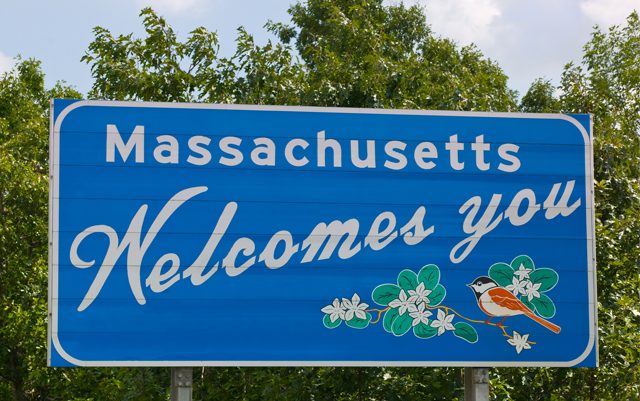After several delays along the way and a missed deadline at the end of June, lawmakers in Massachusetts have finally reached an agreement on the changes that will be made to the voter-approved cannabis legalization law passed last November. The proposed changes will increase taxes on recreational cannabis sales to 20% in total – where it was originally 12% in the voter-approved version of the law. This change has been criticized by activists and advocates as it will make it harder to divert sales from the illegal market to the legal one.
However, while the Senate version of the bill would have left taxes alone, the House version had attempted to raise them up to 28% – and this latest bill is a so-called “compromise” between the two (even if voters don’t get a say in the matter). It will include a 10.75% excise tax (previously 3.75%, but lower than the House proposed 21.5%) on top of the 6.25% state sales tax. It also allows cities and counties to tax at a rate of up to 3%, instead of capping it at 2%.
“We have protected the right of adults to grow, possess, and use marijuana. To give them access to a safe, legal supply, the bill removes barriers to the development of a legal market,” said Sen. Patricia Jehlen on the release of the Marijuana Conference Committee report. “It protects the rights of medical marijuana patients, and gives opportunity to farmers and to people who have been harmed by the War on Drugs. The tax rate remains among the lowest in the country, and the same as in Oregon, often seen as successful.”
Other changes to the voter-approved law include allowing cities who voted against legalization to ban or restrict the number of dispensaries and other types of cannabis businesses that may open, without the need for a city-wide referendum. On the other hand, cities that voted in favor of the bill will need to hold a referendum and allow voters to decide whether or not to ban or restrict cannabis businesses.
It also expands the Cannabis Control Commission and its role. The commission was created as a part of the legalization initiative, but originally only held three people and was overseen by the Treasurer. Now it will still be overseen by the Treasurer, but it will be comprised of five people; one chosen by the Attorney General, one chosen by the Governor and one chosen by the Treasurer. They will have to come to an agreement on the remaining two open spots on the commission.
The last big change to note is the fact that while medical marijuana will remain untaxed, the regulation of the industry – which has been overseen by the Department of Health up until now – will soon be overseen by the Cannabis Control Commission as well. Most of these changes are relatively minor compared to what was originally proposed in the House bill – things like the amount of cannabis you can legally possess, buy or grow at home will all remain as they are in the current law.
This still all needs to be approved by both chambers before being signed into law by the governor. Once approved, the state will finally be able to begin working towards getting licensing and other things underway in hopes of staying on-track from here on out to have at least a few dispensaries open for business by July 2018.







This adjusted sales tax was most likely the plan in the state legislature all along:
Scare us with a proposed tax of 28%, only to finalize the sales tax at 20%;
That figure is dead in the middle. Coincidence ? Doesn’t seem like it.